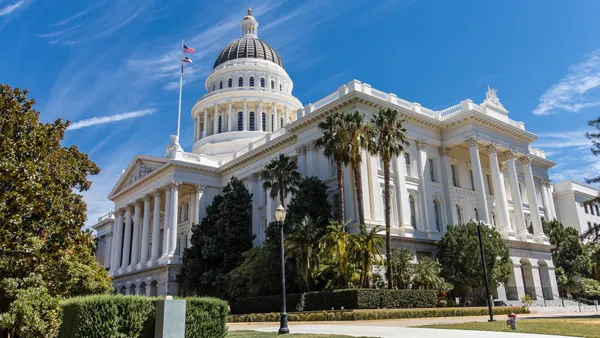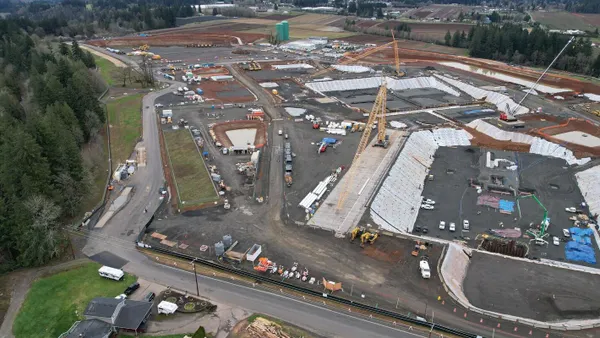UPDATE: June 25, 2018: The Philadelphia City Council on Thursday voted to authorize the contentious 1% construction tax bill by a razor-thin margin of 9-8. The council also passed a companion bill that allows the Housing Trust Fund to create a sub-fund, which will decide how the new tax revenue is spent. The money will be available to nonprofit and profit companies to build homes for households making up to $105,000 per year.
Greeted by boos from some in attendance at the council meeting, local lawmakers heard testimony from those opposed to the bill and from those in support, with some expressing concern that the bill did not actually guarantee those making 30% or less of the area median income would benefit and that 1% was not enough to make a dent in the affordable housing problem, according to Curbed Philadelphia.
Dive Brief:
- Unions and some city officials, according to WHYY, are pushing back against a Philadelphia City Council plan that includes raising money for a city-sponsored housing program by taxing construction projects at 1%. The Construction Impact Tax, according to a city press release, would inject $22 million annually into the Housing Trust Fund, which pays for the Philly 1st initiative, a program that provides eligible, prospective homebuyers with down payment or closing cost assistance.
- Proponents of the plan argue that this will give city residents of low or moderate income the chance to be homeowners. Critics maintain that such a tax would stymie growth and have a negative impact on local businesses. In addition, opponents said the taxable amount is based on building-permit cost estimates, which are difficult to verify.
- Another piece of the plan, the Mixed Income Housing Bonus, would tax developers seeking a zoning bonus at 1% to 2% of construction costs or give builders the option to set aside 10% of their units (apartments, condominiums and single-family) as affordable for 50 years. Controversial amendments to the plan include an exemption for renovation projects less than $100,000 and a 25% rebate of the impact tax to firms that promise to hire minorities.
Dive Insight:
Even though these measures come with the potential to thwart future business growth and development, as some opponents claim, some municipalities are willing to risk it in order to gain much needed affordable housing.
Los Angeles residents will have to wait and see if a regulation passed late last year will help provide relief to low-income families and the homeless. The city council authorized a fee ranging from $8 per square foot to $15 per square foot on all new homes and apartments. This is expected to add $15,000 to the costs of a new apartment in a pricey area of town. Los Angeles, along with other California metros, already has some of the most expensive rents and home prices in the country.
Portland enacted an inclusionary housing measure last year that requires developers of qualifying residential projects to set aside a percentage of their units as affordable. The city has given developers alternates, however, including the choice of paying a fee instead. Nevertheless, the new regulation has not been the driver of affordable housing that supporters of the regulation expected it to be, so they are looking to revamp the program to encourage more development.













